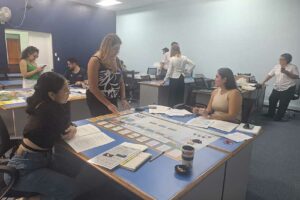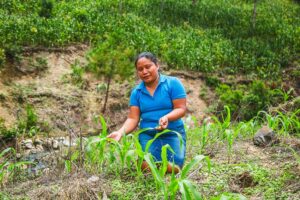CATIE participates in multi-sectoral action planning for food and nutritional security in Guatemala
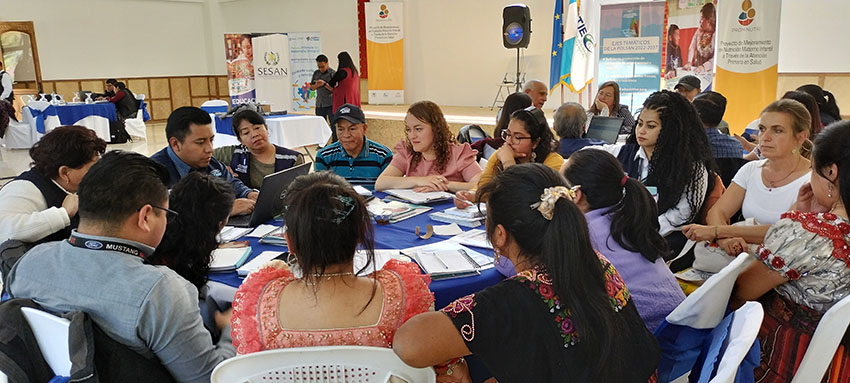
- The eight COMUSANs and CODESAN met in the department of Totonicapán to plan their actions for the year 2024.
November 15, 2023. On November 9, the first meeting was held for annual operational planning with a multisectoral approach to food and nutrition security in the department of Totonicapán, in Guatemala.
This was done in coordination with the Secretariat of Food and Nutritional Security (SESAN), the institutions of the Food and Nutritional Security System (SINASAN), which make up the Municipal Commissions for Food and Nutritional Security (COMUSAN) and the Departmental Commission for Food and Nutritional Security (CODESAN).
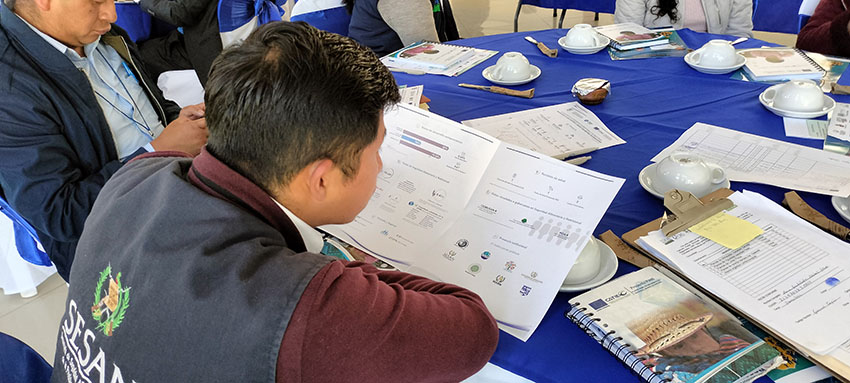
It also involved the Project for the Improvement of Mother and Child Nutrition through Primary Health Care (PROMiNUTRI), financed by the Japan International Cooperation Agency (JICA); the Learning for Life (APV) project, implemented by Catholic Relief Services Catholic Relief Services (CRS); and the National Information Platform on Nutrition (PiNN) phase II project, implemented by CATIE (Tropical Agricultural Research and Higher Education Center), which is financed by the European Union in Guatemala.
According to Tobías Tzoc, representative of the PROMiNUTRI/JICA project, this activity is a first approach with the institutions that make up SINASAN at the departmental and municipal levels. Tzoc added that the objective of the activity was to initiate the development of the Annual Operational Plan 2024, so that sectoral interventions are comprehensive and sustainable, so that they are aimed at reducing food and nutrition insecurity.
Martha María Pacay, advocacy specialist of the PiNN project, explained that the country has both strategic and operational instruments and guidelines that should be taken into account in planning, such as the Municipal Public Policies for Food and Nutritional Security, the Food and Nutritional Security Policy, the Strategic Plan for Food and Nutritional Security, the Strategic Plan for Food and Nutritional Security, the Strategic Plan for Food and Nutritional Security, the Strategic Plan for Food and Nutritional Security, the Strategic Plan for Food and Nutritional Security, and the Strategic Plan for Food and Nutritional Security, the Strategic Plan for Food and Nutritional Security (PESAN), the Annual Operational Plan (POA) on Food and Nutritional Security 2024, the National Development Plan K'atun Nuestra Guatemala 2032, the Sustainable Development Goals (SDGs) and the strategic orientations of the government for the 2024-2028 administration.
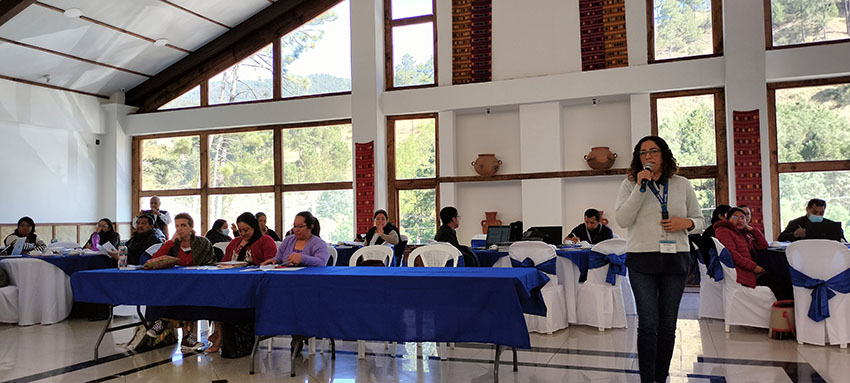
Similarly, Pacay emphasized the importance of the use of food and nutrition security (FNS) data and information available through the Municipal (SIMSAN) and Departmental (SIDESAN) Information Systems of Totonicapán, which strengthen and assist in planning processes such as, for example, in the definition of departmental and municipal goals, as well as in the targeting of FNS interventions.
According to José Esaú Guerra, departmental delegate of SESAN, very rarely has there been the opportunity to bring together all the institutions that make up SINASAN to prepare the annual operational plans of the eight COMUSANs and CODESAN, which is done thanks to the support and technical assistance of international cooperation.
Guerra added that he is sure that the actions established in the municipal policies and their lines of action, including water and sanitation, health and nutrition, food availability, social protection, communication for social and behavioral change, will be reflected in the AOPs, since we are at the gates of a new government, and will surely be launching a new strategy focused on the prevention and reduction of food and nutrition insecurity, with the indicators that have been working.
The meeting concluded with important agreements on the monitoring and evaluation of CODESAN. As part of this monitoring, COMUSAN members will be asked to present their progress in June 2024, to contribute to the continuous improvements that need to be made.
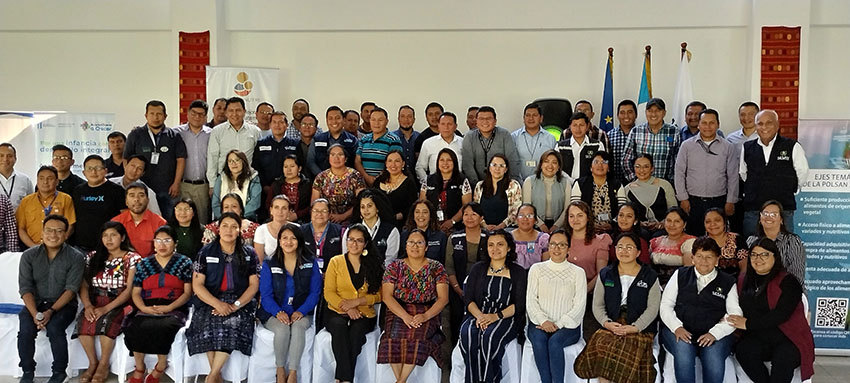
Written by:
Ninoshka Lou
Communicator
PiNN Project/CATIE
Ninoshka.lou@catie.ac.cr
Tag:Guatemala, nutrición, Food security

